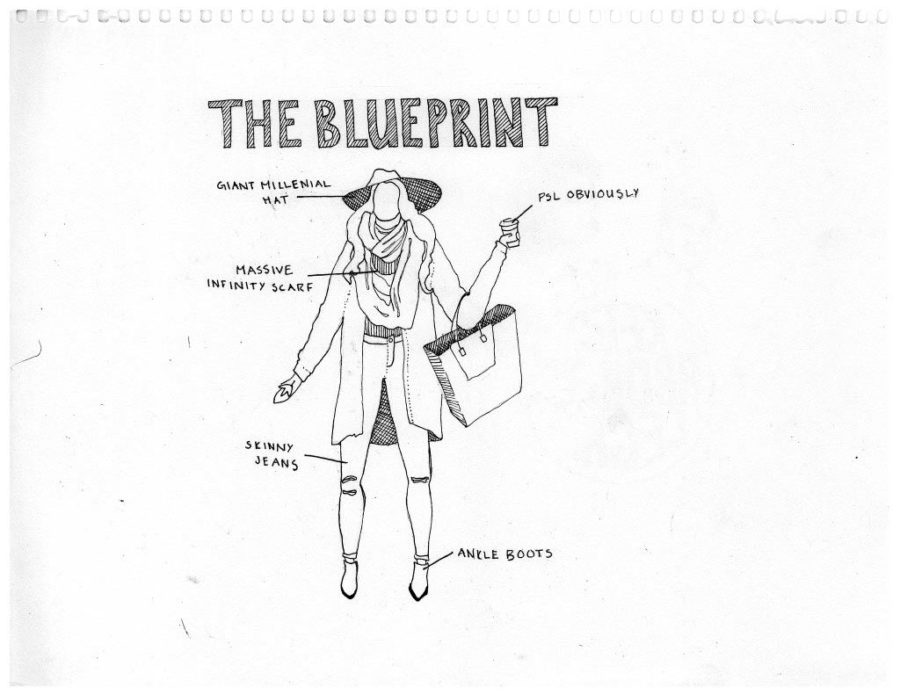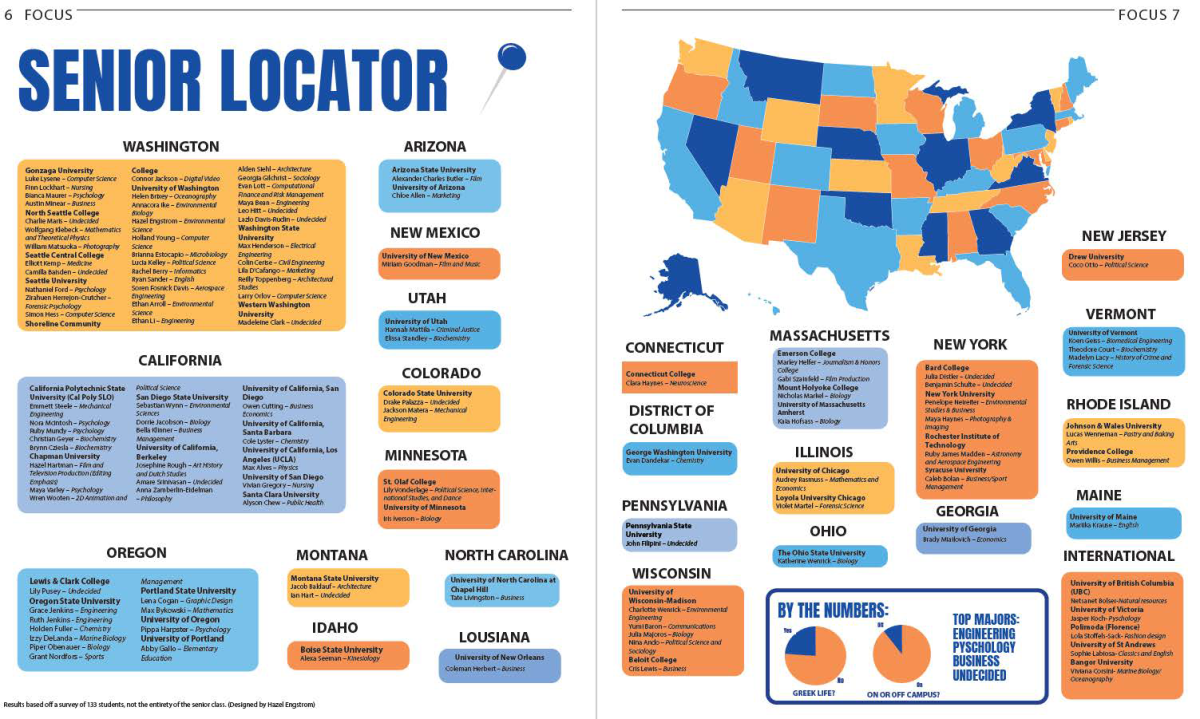The appeal of Christian Girl Autumn
It’s a lifestyle for everyone, even those who hate pumpkin spice lattes
Christian Girl Autumn and those who partake in it represent a level of freedom and joy that cannot be achieved by the cynics and edgelords of the world. In this culture of cringe and critique, it’s easy to make fun of everything.
December 1, 2022
As the leaves turn from green to gold, as floral dresses are replaced by cozy knitwear and icy glasses of lemonade are traded for steaming pumpkin spice lattes, it’s clear the tide has turned. Hot Girl Summer is over. It’s Christian Girl Autumn now.
For those unfamiliar, Christian Girl Autumn has nothing to do with Christianity, although some revere the pumpkin spice latte with near religious devotion. The term simply describes the aesthetic of a particular kind of white woman. This woman, the so-called ‘Christian Girl’ posts photos of her and her gal pals every year, colorful leaves falling in the background, chunky sweaters and faux leather boots in the foreground. She loves going to pumpkin patches and drinking pumpkin spice lattes. She’s basic.
The Origin of Christian Girl Autumn
Christian Girl Autumn was coined three years ago, by twitter user Blizzy McQuire. They tweeted “Hot Girl Summer is coming to an end, get ready for Christian Girl Autumn,” over a now infamous picture of two identically dressed brunettes with loose white tops, skinny jeans, massive scarves and perfectly curled hair. The tweet immediately blew up, other twitter users making fun of the women, sharing their perceptions of them and imagining how the women act in their daily lives. Amidst the jokes and comments remarking on the women’s ‘basicness,’ a more sinister theme arose. Most people agreed, despite their put together and friendly exterior, these women were likely hateful. They were conservative, they looked down on anyone who didn’t look like them.
After a couple days of jokes and comments, Caitlin Covington, one of the women pictured in the original post responded. “If all of Twitter is gonna make fun of my fall photos, at least pick some good ones! Super proud of these. For the record, I do like pumpkin spice lattes. Cheers!” Covington tweeted. Her tweet contained emojis and a lighthearted tone, paired with more photos of Covington in cozy clothes doing classic autumn activities. Covington was responding to being memed, playing into what people thought of her, but showing self-awareness.
Since the meme was first created, both women, Covington and her friend Emily Gemma, have responded. They don’t mind people using their fall photos for memes, but they want people to know, they no longer dress like it’s 2016, and most importantly, they’re not the narrow minded people most of the memes made them out to be. “I’m white and Christian but none of the tweets were accurate,” Gemma said. “I laughed at all of it but…none of it’s true. We don’t ever want to speak to the manager!”
Covington shared similar sentiments. “That’s not me at all,” said Covington. “I’m a nice person and I love everyone and I’m accepting of everyone.”
Now, instead of facing ridicule, the two, especially Covington, are beloved. Online, Covington jokes with fans, many of whom are gay men. She reposts memes that use her image. And every year, more and more people look forward to her annual fall photoshoot.
The Defense of Christian Girl Autumn
Personally, I’m impressed with both Gemma and Covington’s good natured responses to the mockery. Many people, particularly celebrities, could benefit from emulating some of that grace online, instead of responding to any joke or critique by posting long and poorly worded diatribes on cancel culture. Those women, aAutumn’s original ‘Christian girls’, were put in a challenging situation, they responded well, and they have been rewarded for it.
However, I still caution people to be conscious of the way we exalt and defend the ‘Christian Girls.’. For instance, Buzzfeed ran an article titled “Christian Girl Autumn Meme: The Influencers Speak Out!” The article itself is well written and contains many of the quotes I’ve used, but the title and some of the language used makes it sound like they’re breaking their silence after some terrible hardship.
While many of the critiques lobbied at them are rooted in misogyny and the desire to demean women and their interests, these women don’t really need to be defended or rallied around. At the end of the day, they’re well-to-do white women, the group most protected by liberals and conservatives alike. BAnd being made fun of for being basic isn’t the same as facing discrimination. At least to my knowledge, no one has ever been deprived of a job because they enjoy pumpkin spice lattes.
Why We Should All Embrace Christian Girl Autumn
In spite of my misgivings around some of the defense of Christian Girl Autumn, and the limited appeal of the aesthetic, I would still recommend the Christian Girl Autumn lifestyle to anyone. To me, Christian Girl Autumn and those who partake in it represent a level of freedom and joy that cannot be achieved by the cynics and edgelords of the world. In this culture of cringe and critique, it’s easy to make fun of everything. It’s easy to look down on ‘normies,’ those who are too dumb to be bitter, who have the audacity to enjoy things in spite of how clearly embarrassing in they are. It feels safer to bundle yourself up in big words and self righteousness, to hide your embarrassing taste and guilty pleasures, to make fun of others before they could ever make fun of you.
Christian Girl Autumn feels like a rejection of this. Caitlin Covington, the most famous Christian Girl Autumn influencer knows she’s a punchline. She’s responded, taking it in stride, continuing to post her perfectly posed fall photos, and she’s become more famous and beloved because of it. To me, that’s what Christian Girl Autumn is all about. It’s not about chunky sweaters, skinny jeans, pumpkin spice lattes and posing by trees. To embrace Christian Girl Autumn is simply to embrace who you are and what brings you joy, no matter how ridiculed or cringeworthy it may be.




















